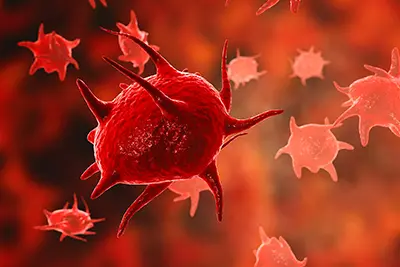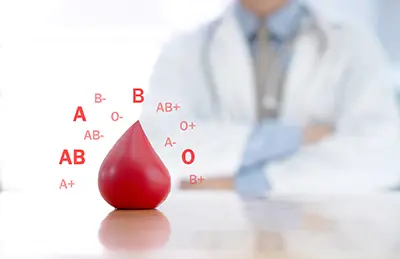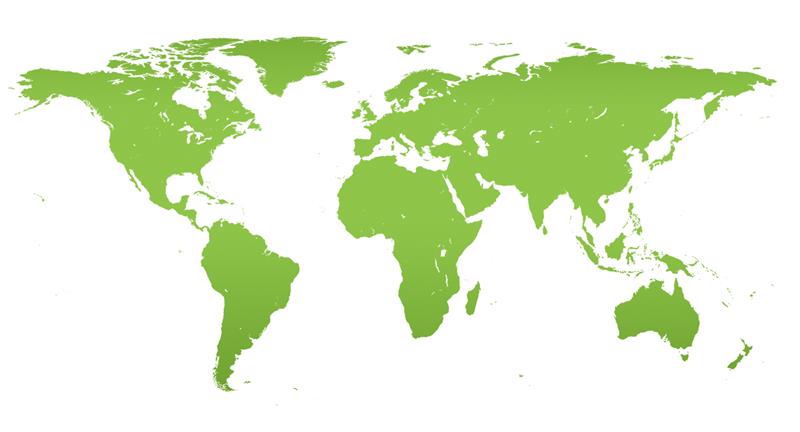It’s in Your Blood
You may have seen on the news or in an online advertisement that there is an urgent need for blood supplies in Canada. This shortage has been ongoing for a while now, and it has the potential to negatively impact many Canadian lives.[1], [2], [3] It is in part due to increased need for blood products and a reduction in the number of donations over the past few years. Blood products are constantly needed as they are used every day to save lives, and there is a limited shelf life for unused supplies.[4] Therefore, donors should give regularly to keep adequate levels.
The three main blood products collected in Canada are blood, platelets, and plasma.[5]
Plasma
Plasma refers to the liquid part of blood, containing water; proteins (including clotting factors); and a small amount of minerals, sugars, hormones, fats, and vitamins.[6], [7]
Plasma is typically given to individuals after experiencing physical trauma (e.g., a car accident), a serious burn, or going into shock; it may also be given on a regular basis to individuals with liver disease or clotting disorders.[8] Donations of plasma are especially important from individuals with AB blood type, as their plasma can be given to patients of any blood type.[9]
 Platelets
Platelets
Comparatively, platelets are small blood cells that cluster together to form a clot and stop bleeding cause by an injury.[10] They are made in the bone marrow, are processed by the spleen, and are abundant in the blood. Platelet donations benefit individuals with inadequate amounts themselves—usually due to certain types of cancer, severe blood loss, and/or autoimmune diseases.[11]
Whole Blood
Finally, whole-blood donations are of everything found within the blood: iron-rich red blood cells, plasma, and platelets.[12] Individuals with blood type O negative are considered universal donors, since their blood can be given to any blood type, which makes it so useful in emergency situations. Of course, all blood types are needed and used in Canada.[13]
Who Can Donate?
Giving blood is easy and accessible for most. Here are the minimal criteria to be eligible: be at least 17 years old, weigh at least 50 kg, and be of good health.[14] At the time of the blood-donation appointment, further screening is completed to determine precise eligibility: potential donors answer a health-status questionnaire, and their vital signs and hemoglobin levels are checked. If hemoglobin levels are too low, this may indicate there are inadequate iron levels to donate blood safely. If low iron levels are suspected, follow-up testing with a physician is advisable to determine the underlying cause of low iron. If it is determined to be due to low dietary iron intake or related to blood loss, an iron supplement may be recommended.[15]
 How Long Does It Take?
How Long Does It Take?
How long should I expected to be there? The duration varies by what product is collected and how much is taken, but generally takes between an hour and two. The actual collection can take as little as 10 minutes, but the screening questionnaires, set up, and rest period following collection are what take the most amount of time.[16], [17], [18]
Is it Safe for Me to Give Blood?
Blood donation is generally safe if no contraindications exist—which would have been identified beforehand in the health screening before any blood is donated. The most common side effects are feeling faint or nauseous during or shortly after donation, or bruising at the site of collection. Both are usually minor and self-limiting. There is also no risk of contracting a blood-borne disease by participating in blood donation. Furthermore, the body recovers quickly; the donated fluids will be restored within 24 hours, and red blood cells will be replaced within a few weeks.[19]
What Are the Benefits of Donating Blood?
The major benefit of donating blood is obvious: the mental health boost in knowing that your donation will help save lives. Indeed, estimates suggest that one donation may save up to three lives![20] It has also been noted that people who donate blood regularly experience fewer heart attacks, especially in men, but research on this remains ongoing. It has also been observed that, in some populations, blood donation reduces the risk of cancer and mortality and can help keep the liver healthy.[21], [22]
Another health benefit to the donor is the free health screening: If someone donates blood regularly, then health issues are likely to be noticed sooner. Additionally, after blood is collected, it is tested for disease; if identified in the blood, it is disposed of (not used), and the donor is notified to seek treatment.[23], [24], [25] So, why not donate today? It’s in your blood!
Dr. Katie DeGroot, BSc, ND, MScN
Dr. DeGroot is an Alberta-registered naturopathic doctor who also holds a Master of Science in Nutrition. She offers nutritionally focused care and has a special interest in digestive issues and supportive mental health-care.
drkatiedegroot.ca
References
[1] Graveland, B. “‘Supplies are tight’: Canadian Blood Services concerned about current inventory.” CTV News, 2022-12-13, https://www.ctvnews.ca/health/supplies-are-tight-canadian-blood-services-concerned-about-current-inventory-1.6193141, accessed 2023-01-31.
[2] O’Neill, N. “‘Immediate need’ for blood and plasma donors after winter storms led to shortfall.” CTV News, 2022-12-27, https://www.ctvnews.ca/health/immediate-need-for-blood-and-plasma-donors-after-winter-storms-led-to-shortfall-1.6209605, accessed 2023-01-31.
[3] Draaisma, M. “Canadian Blood Services urges donors to keep appointments as blood supplies reach new low.” CBC News, 2022-08-06, https://www.cbc.ca/news/canada/toronto/canadian-blood-services-supplies-low-mask-mandate-1.6543815, accessed 2023-01-31.
[4] [No author listed.] “Donate now: urgent need for blood across Canada continues.” Canadian Blood Services, 2018-03-05, https://www.blood.ca/en/about-us/media/newsroom/donate-now-urgent-need-blood-across-canada-continues, accessed 2023-01-31.
[5] Healthwise staff. “Donating blood.” MyHealth.Alberta.ca, 2021-11-29, https://myhealth.alberta.ca/Health/Pages/conditions.aspx?hwid=uf10217, accessed 2023-01-31.
[6] Healthwise staff. “Plasma.” MyHealth.alberta.ca, 2021-11-29, https://myhealth.alberta.ca/Health/Pages/conditions.aspx?hwid=d37638329, accessed 2023-01-31.
[7] American Red Cross. Blood Services. The importance of plasma in blood. https://www.redcrossblood.org/donate-blood/dlp/plasma-information.html, accessed 2023-01-31.
[8] American Red Cross. Blood Services. op. cit.
[9] American Red Cross. Blood Services. op. cit.
[10] Healthwise staff. “Platelet.” MyHealth.Alberta.ca, 2021-06-17, https://myhealth.alberta.ca/Health/Pages/conditions.aspx?hwid=stp1574, accessed 2023-01-31.
[11] American Red Cross. Blood Services. Platelets and thrombocytopenia. https://www.redcrossblood.org/donate-blood/dlp/platelet-information.html, accessed 2023-01-31.
[12] Healthwise staff. “Donating blood.” op. cit.
[13] Canadian Blood Services. Donating blood. https://www.blood.ca/en/blood/donating-blood, accessed 2023-01-31.
[14] Healthwise staff. “Donating blood.” op. cit.
[15] DeSimone, R.A., and S. Vossoughi. The surprising benefits of donating blood, 2022-01-24, https://www.cuimc.columbia.edu/news/surprising-benefits-donating-blood, accessed 2023-01-31.
[16] Healthwise staff. “Donating blood.” op. cit.
[17] American Red Cross. Blood Services. Frequently asked questions. https://www.redcrossblood.org/faq.html, accessed 2023-01-31.
[18] Canadian Blood Services. Blood donation process. https://www.blood.ca/en/blood/donating-blood/donation-process, accessed 2023-01-31.
[19] Healthwise staff. “Donating blood.” op. cit.
[20] Flavin, B. “6 Surprising Health Benefits of Donating Blood.” Health Sciences Blog, 2018-02-01, https://www.rasmussen.edu/degrees/health-sciences/blog/surprising-health-benefits-of-donating-blood/, accessed 2023-01-31.
[21] DeSimone and Vossoughi. op. cit.
[22] Flavin. op. cit.
[23] Healthwise staff. “Donating blood.” op. cit.
[24] DeSimone and Vossoughi. op. cit.
[25] Flavin. op. cit.

